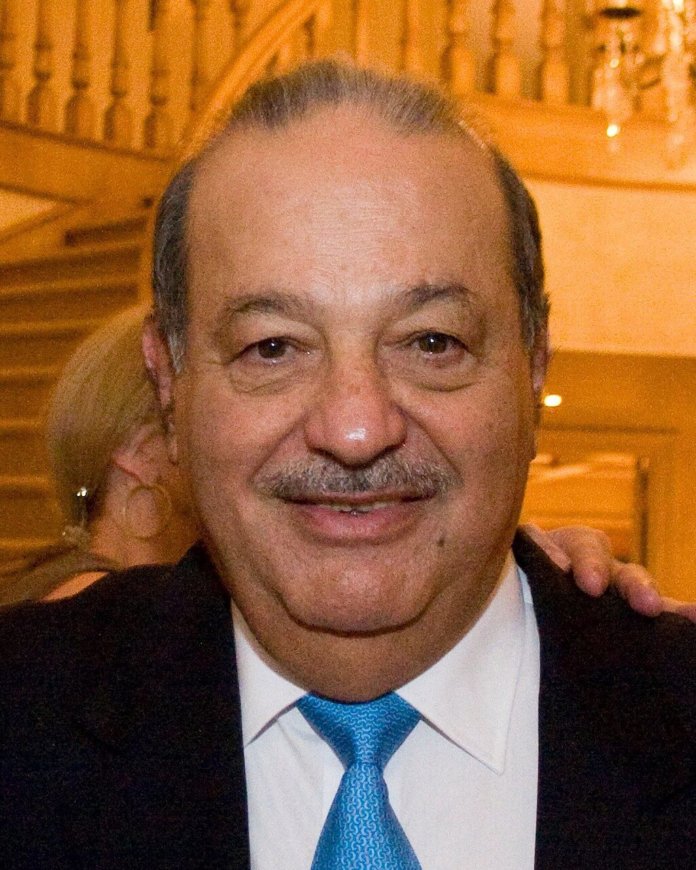
The title of the richest man in the world may sound more like a fantasy than reality, but a select few have actually held privilege to such a title. One modern-day example is Mexican-born businessman Carlos Slim Helú, known simply as Carlos Slim. Slim’s combination of assets and investments through his conglomerate, Grupo Carso, resulted in his net worth estimated at $79 billion, and consequently the richest man on Earth from 2011 to 2013. However, with this level of success comes controversy, and many are quick to cast aspersions not only on his wealth compared to that of the average Mexican citizen, but also on the business practices that got him to where he is today.
Who Is Carlos Slim?
Compared to some of the more visible billionaires of our day such as Bill Gates, Warren Buffet, or Richard Branson, the story of how exactly Carlos Slim became so wealthy is less well known. After all, there’s no single wildly successful brand or product like an Apple or Microsoft to tie his name to. But that is not Slim’s business model. A better comparison to his success is the Rockefeller family, who used acquisitions and a massive market share to create their fortune.
The son of Lebanese immigrants, Carlos Slim took his father’s lessons of thrift and financial responsibility to heart in his earlier years. His first business venture began while he was still in his 20s at a stock brokerage called Inversora Bursatil. Even as his income grew, he chose to live modestly, focusing instead on acquiring companies and expanding his holding group, guided by a unique strategy of locking in companies in troubled times and then turning them around, making a fortune in the process.
Focusing on industries such as real estate, mining, tobacco, and retail, Carlos Slim leveraged his business philosophy into great effect during the peso crisis of the early 1980s. As the Mexican economy withered from falling oil prices and foreign investors pulled billions from the country, Slim bought the Mexican affiliates of Reynolds Aluminum, General Tire, and Sanborns retail stores at a discount. When the economy recovered, he built on the momentum by acquiring the Mexican rights to several U.S. brands including Firestone tires, Hershey’s and Denny’s.
Slim’s extremely diverse portfolio continued to grow through the 1990s, leading up to his acquisition of the Telefonos de Mexico (Telmex), Mexico’s state-owned telephone company. With his eyes on the telecommunications market, Carlos Slim implemented practices that would make cellphone service accessible for poorer Mexican citizens. When the dotcom burst sent foreign-owned cellphone companies crashing down, Slim would be there to pick up the pieces. America Movil, the company he created in 2000 and parent company of Telemex, become the crown jewel of his financial empire as it took the title of biggest mobile carrier in Latin America with nearly 300 million wireless subscribers. By 2007, his companies would be valued at $150 billion, marking the first year that he became the richest man in the world.
Success and Controversy
While the notion of a man who rose from humble beginnings to global success while driving himself to work and having family dinners every Monday sounds endearing, there are a number of critical voices that have raised concerns over his company’s business practices. It is commonly said that due to his expansive hold on the telecommunications market and a wide variety of industries, one can’t spend a day in Mexico without putting money in Carlos’s Slim’s pocket. With his personal and business fortune equivalent of 7% of the country’s GDP, Slim has been accused of stifling market competition.
The most infamous accusation occurred following Slim’s acquisition of Telmex, which was already a state-owned monopoly. Around this time, Slim also took over one of Mexico’s largest makers of copper wire. Slim then forced Telmex to restrict its copper wire purchases to his own company, driving a major rival out of business and sold off to an American firm. Critics say that this is just one of many anti-competitive practices of Grupo Carso’s sprawling empire, restricting growth for newcomers and existing competitors. With the Mexican GDP per capita at just $10,174, and almost half of the country living below the poverty line, there are growing concerns over Slim’s role in exacerbating inequality in a society desperate for expanding standard of living for the middle and lower class.
In a 2007 Forbes interview when he was first declared the world’s richest man, Carlos Slim shrugged off his critics, explaining, “When you live for others’ opinions, you are dead,” he said. “I don’t want to live thinking about how I’ll be remembered.” Perhaps it is only future historians that are best equipped to judge whether Carlos Slim will be remembered as a visionary business tycoon or the leader of Mexico’s most stifling monopoly.









